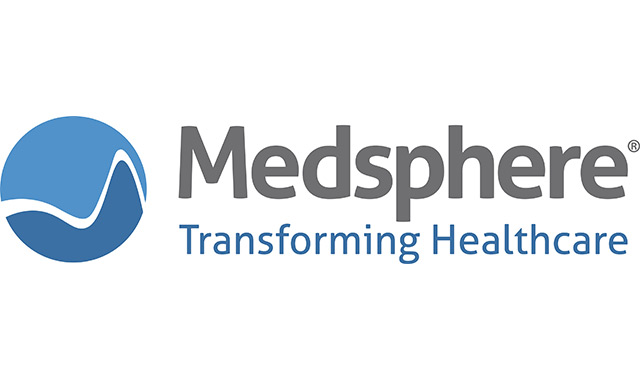
Are you old enough to remember the pre-concert security searches for recording devices that were once part of every live music experience? Yes, musicians once had some semblance of control over bootleg audio and video.
But the proliferation of tiny hand-held computers that happen to also make phone calls ended all that. Now, tossing music-lovers who pull out a phone to record would empty entire arenas save a few luddites with flip phones and mullets.
Sometimes silently, other times with great fanfare, technology has wormed its way into almost every aspect of life. Much has been written about the use of electronic health records in healthcare, for example, but EHRs are just one example.
In behavioral health, EHR adoption lacks financial incentives so the rate of adoption has lagged that of acute care. And still technology creeps into the way we provide behavioral health care, in many ways transforming and often improving treatment, compliance and reporting.
One could argue that the potential for positive disruption is greater in behavioral health than in any other subset of medicine and healthcare. So how, exactly, is technology upsetting the behavioral health apple cart in beneficial ways?
- Improving correlation of health information: There is a strong likelihood that a patient with bipolar disorder or a similar affliction is also self-medicating with drugs and alcohol. Sure, a caregiver somewhere along the way might notice the physical signs of abuse, but they also might not. A comprehensive EHR that includes patient data from coordinated providers would provide that information, just as it would when the bipolar patient shows up at the ER with a broken arm.According to the National Bureau of Economic Research, Americans with a current mental illness account for 38 percent of all alcohol, 44 percent of all cocaine and 40 percent of all cigarettes consumed in the country. Those who have ever had a mental illness consume 69 percent of all alcohol, 84 percent of cocaine and 68 percent of cigarettes. Therapists might sometimes have the luxury of just treating a mental illness, but around half the time they will also be working with an addiction problem and must aware of both.
- Making care available outside urban areas: The numbers suggest mental health counselors are jockeying for clients in urban areas and scrambling to meet overwhelming demand in rural sections of the country. Rates of alcoholism, opiate abuse and generally risky behavior are higher outside of major cities, creating a burgeoning healthcare crisis in the parts of the economy oriented around agriculture and energy.With few promising alternatives, much of the push to resolve America’s rural health conundrum is now focused on telehealth, and with good reason. Telehealth has proven effective thus far in treating depression and PTSD. According to a 2012 Institute of Medicine report, telehealth also increases volume, improves care and cuts costs by keeping patients out of the ER and reducing readmissions.
- Boosting the bottom line: A comprehensive EHR combined with robust revenue cycle tools and services ensures that behavioral health care providers are compensated more reliably for the care they provide.“An EMR is an investment because it provides long-term benefits and may be an important tool for reducing the cost of expenses,” writes Carol Turso in Behavioral Healthcare.Turso uses the example of a social services organization that over three years after implementing an EHR reduced bad debt by 93 percent, lowered outstanding accounts receivable of more than 151 days from 24 to 9 percent, and trimmed the time staff spent per week entering remittances and payments from 40 hours to 10 minutes. In every instance, these EHR benefits improve the organization’s bottom line. Even if they don’t technically create new revenue, they are still financially relevant.
- Enabling self-directed care: At its core, self-directed care is empowerment focused on dealing with pain and frustration, getting regular exercise, eating well and communicating with counselors and family. Self-directed care engages the patient more fully in the care process, even in some instances allowing patients input on how and where to spend the money applied to their treatment.In recent years, the self-directed care model has gained more currency in the provision of behavioral health care. Support for self-directed or self-managed care comes from Health and Human Services, the Centers for Disease Control and Stanford University Medical School, among others. For self-directed care objectives, technology, especially mobile phones, offers support and assistance.
- Giving kids something to do: Do mobile devices keep kids off drugs? The jury is still out, but it’s one explanation for a steady downward trend over the last decade of teenagers experimenting with drugs and alcohol. Correlation, of course, is not causation, which is why the National Institute on Drug Abuse plans to make this the subject of a study over the next several months.While many teenagers seem as addicted to mobile phones as they might be to marijuana, parents will probably rest easier knowing the former might be preventing the latter.
The proliferation of technology, especially in healthcare, is something that must be monitored over time and re-evaluated regularly. As some healthcare economists have pointed out, technology drives up healthcare costs more than any other factor.
But behavioral health, specifically, will never have to invest in massively expensive tools like MRI machines, creating an opportunity for the grassroots use of relatively affordable handheld and desktop technology that over time can affect measurable change in the lives of patients.
D’Arcy Gue is Director of Industry Relations for Medsphere Systems Corporation.






























